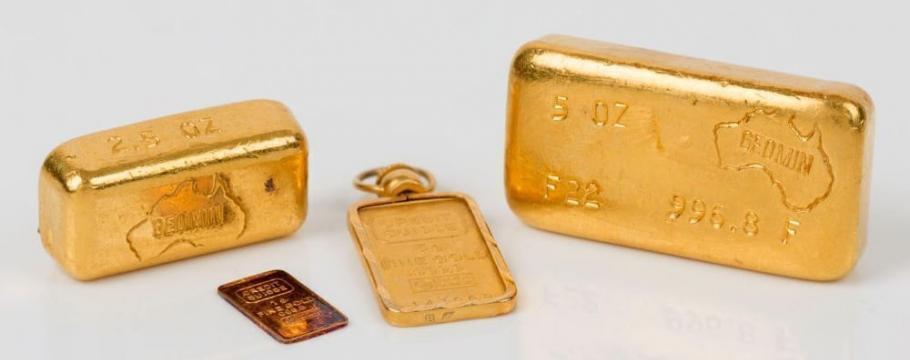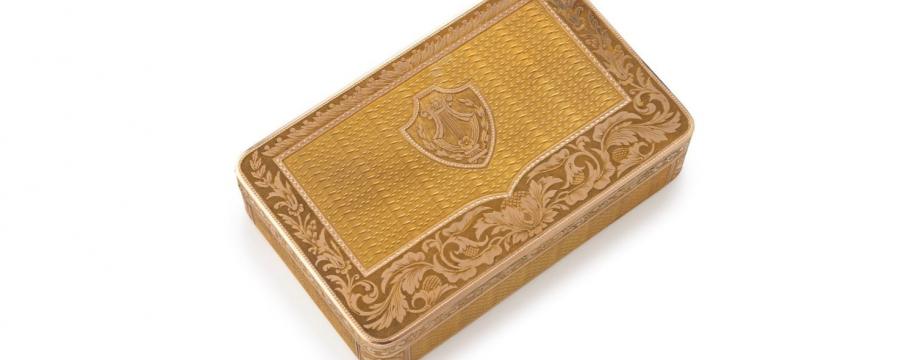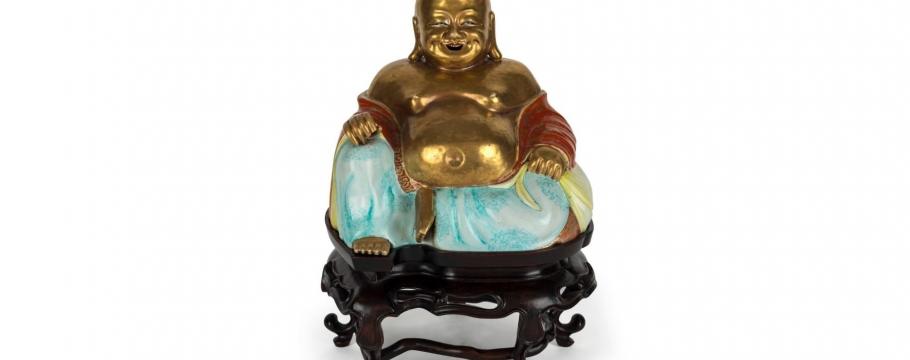









Titanic reminder in Australian auction
Author: Richard Brewster | Posted: 24th January, 2024
Tragically sunk in 1912 with a large loss of life when it hit an iceberg on its maiden voyage from England to America, the passenger liner Titanic is being remembered this year in Australia through the Melbourne Museum’s unique exhibition of 200 real artefacts recovered directly from the wreck site.
In its first decorative arts and collectables auction for 2024, Leski Auctions is acknowledging its own small tribute to the ship’s memory with a breakfast cup and saucer emblazoned with the White Star Line logo (lot 1372) – the company that owned the Titanic.
The two-day auction begins at 10am Saturday February 10 and continues at the same time the following day at 727-729 High Street, Armadale.
This broad ranging sale features everything from silver, jewellery, Chinese and Asian art, clocks, furniture, lighting and paintings to porcelain and ceramics, glass and crystal, cameras and photographic equipment, military memorabilia, antique tools and radios and gramophones.
Much of it is catalogued with affordable estimates of several hundreds of dollars – although some items are featured in the tens of thousands.
One of these is lot 216a – four assorted 24-carat gold ingots – with a $20,000-$25,000 estimate.
Another is a rare 17th century William and Mary English longcase clock made by Joseph Knibb (lot 587) – its catalogue estimate at $20,000-$30,000 – while at $12,000-$15,000 a circa 1775 bell top spring table clock by London’s Henry Kemp (lot 586) is bound to interest genuine clock collectors.
Those buyers who like vintage gold wristwatches should take a close look at the Patek Philippe example (lot 360) – made from 18-carat yellow gold with the clasp stamped Patek Philippe, Geneve, 750.
A 19th century 18-carat yellow and rose gold French snuff box (lot 367) and a vintage nine-carat gold cigarette case (lot 374), with engraved finish and stamped with the number 375, are other interesting finds.
Chinese artefacts are always highly collectable and a Northern Qi Dynasty pottery warhorse dated 550-577AD (lot 390) is an important find. It comes complete with University of Wollongong thermoluminescence documentation and a certificate of authenticity from Melbourne’s B.C. Galleries.
Similar documentation accompanies a Tang Dynasty (618-906AD) polychrome pottery statue of a court attendant (lot 391).
An early 19th century Qing Dynasty Buddha on a carved wooden stand (lot 401) is another interesting Chinese artefact among auction items.
On the Japanese front is a 19th century antique Japanese inro with the Kajikawa family seal (lot 519) adorned with birds and flowers in a gilt lacquer finish.
Paintings are a strong attraction with several Dutch works up for grabs including a signed winter scene oil on canvas by Johann Bernard Klombeck (1815-1893) with a catalogue estimate of $15,000-$25,000.
Sculptor Hugo Lonitz makes an appearance through a pair of 19th century German majolica figural candlesticks (lot 1008).
From 1868, his factory was based in Neuhaldensleben (now called Haldensleben) and closed in 1904 due to financial difficulties.
It mainly produced tableware and household utilities, it is best known for the production of naturalistic majolica pieces, often made in lifelike size and detail, with inspiration taken from Black Forest carving popular in Europe at the time.
Lonitz exhibited these creations at several 19th century world exhibitions including the 1876 Philadelphia International Exhibition.
A Cenedese Murano “aquarium” fish block (lot 1290) is a tribute to Alfredo Barbini, a glass artist born in 1912 in Venice and one of Murano’s leading 20th century artists.





